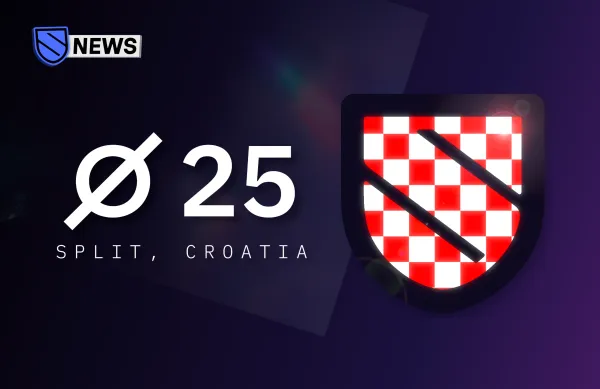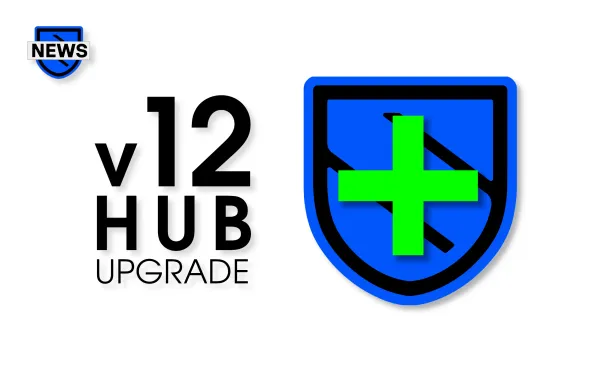Sentinel's First Half of 2025 in Review
A meticulous wrap-up of news from the past six months.
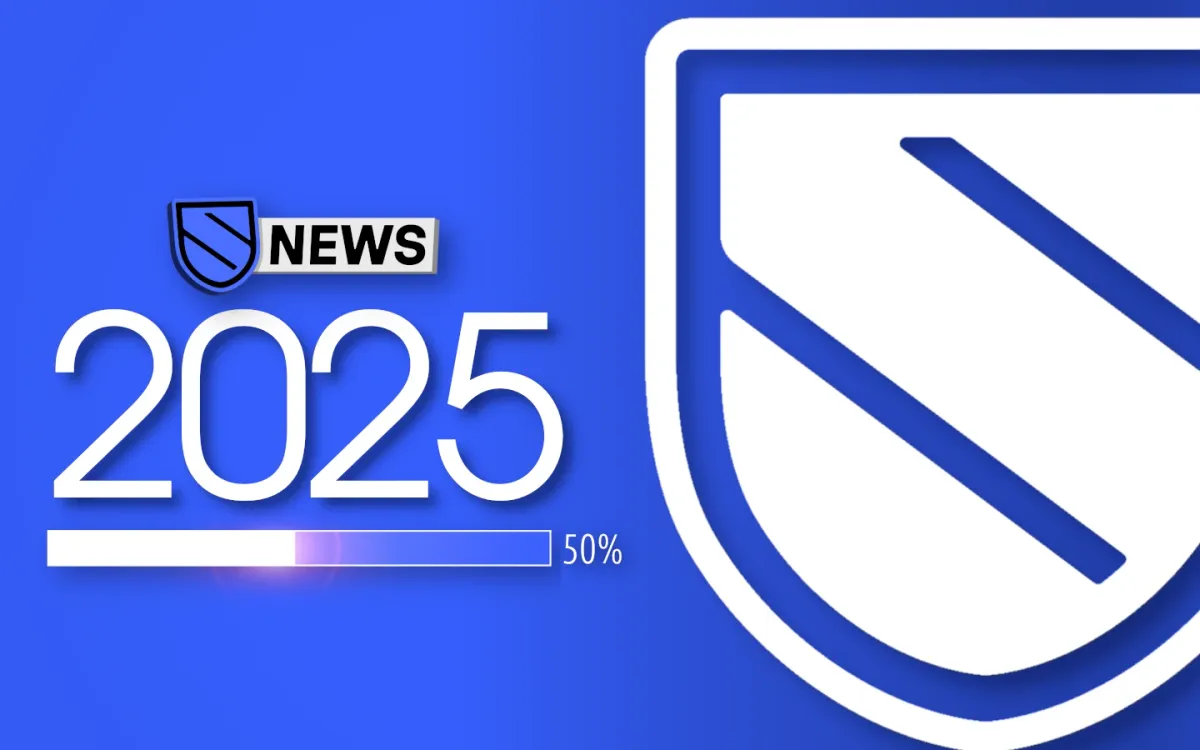
Among Sentinel's eight years of development, 2024 stands alone as the most difficult to follow in terms of progress; but six months into the new year, it's looking like 2025 could give it a run for its money.
So far we've seen a concerted overhaul of the project which culminated in a ticker rebrand and the appointment of the Sentinel's first-ever CEO; plus multiple applications releases, new partnerships, and statistical all-time highs.
The most remarkable aspect of all is that this has just been the tip of the iceberg: The most significant development milestones of the current year will likely occur during July–December.
In this special feature we'll be going around the entire ecosystem to round up every noteworthy happening during the first half of the year.

Network Statistics
The first half of 2025 in numbers.
dVPN Adoption Continues Rise
Sentinel-powered dVPN applications have surpassed 850,000 all-time users since the launch of the project's mainnet blockchain in 2021.
With milestone after milestone being cleared, the once-distant one million all-time unique users mark looms larger and larger. Based on the current pace, it's almost certain to be reached before the start of 2026.
A new all-time high for unique users during a single day was set recently (17,260 on 24 June). In no small part due to that record-setting day, the week of 22 June also had the highest weekly total of unique users in the network's history.
Concurrently, the dVPN network is also approaching one million all-time subscriptions since mainnet launched in 2021, according to data from MathNodes' Metabase analytics utility. Under 40,000 subscriptions remain until that particular milestone is reached.
#1 in Cosmos for Activity
Sentinel is now the busiest blockchain in the entire Cosmos Ecosystem, edging out giants like Osmosis and the Cosmos Hub itself.
Despite its small market cap, Sentinel has long had some of the ecosystem's highest traffic volumes due to the rate of real-world consumer adoption dVPN apps have experienced. After being on the brink for months, Sentinel finally topped all three timeframes on the Map of Zones "Active Users" metric last month.

The active users metric measures the number of unique wallet addresses which have initiated a transaction on a specific blockchain within a given timeframe. The three timeframes on Map of Zones are daily (DAU), weekly (WAU), and monthly (MAU).
Note that these numbers are higher than the dVPN Network unique user totals which we discussed in the preceding section, because DAU/WAU/MAU includes all on-chain transactions, not just application users connecting to dVPN Nodes.
One additional aspect which bears mentioning is that due to the way Sentinel apps like Sentinel Shield or Independent dVPN abstract crypto features behind traditional VPN UIs, a substantial portion of those transactions are being initiated by people who aren't even aware that they're interacting a blockchain.

Core Development
A look at the Sentinel team's progress.
DVPN Becomes P2P
Sentinel's powerful consumer blockchain, and its distributed network of bandwidth-sharing nodes, are becoming something much bigger than a framework for dVPN applications. That message was broadcast to the whole crypto world in mid-May when the ticker moniker of the blockchain's native asset was changed from "DVPN" to "P2P."
The shift away from the old moniker was intended to highlight Sentinel's elevated ambitions. The team is dead-set on making the project the definitive layer one DePIN for internet bandwidth, similar to Akash's dominion of cloud computing and GPU power. The Scout AI data layer was the main impetus for the transition, but even more bandwidth-sharing protocols and services will be joining the existing two down the road.

The ticker moniker change was accompanied by an ongoing visual overhaul of the project and reorganization of its community platforms, including the very website you're reading this on. The project's official website is also receiving a total ground-up overhaul which will go far beyond aesthetic changes (keep reading to see a preview of the new homepage).
Sentinel has also made the most of the current icy alt market conditions by carving out a better position for the coin to succeed once things thaw out: The first successful P2P transactions to Ethereum took place in April. The transfer mechanism is still in closed testing, but it's a concrete precursor to future DEX listings and social exposure within crypto's largest altcoin ecosystem.
A community member going by the moniker Voon (with liquidity support from MathNodes) also spearheaded a successful effort to get P2P listed on privacy-focused CEX TradeOgre in late May.
Litreev Appointed CEO
In a surprise move during April, the Sentinel Foundation appointed NORSE Labs head Aleksandr Litreev as CEO of the project. A CEO position had never existed before during the project's eight-year history.
As CEO, Litreev became Sentinel's primary public-facing figure. Due to his established identity and track record of public appearances and advocacy, Litreev is able to represent Sentinel in an official capacity in venues such as television, podcasts, news articles, and conferences. The position also encompasses a role in forging new enterprise partnerships and onboarding developers.

Sentinel Scout
The most highly-anticipated and potentially revolutionary feature of the Sentinel Scout AI Data Layer entered live testing in April:
Using the protocol's new API, AI agents and LLMs (large language models) can now plug into Scout's distributed network of data miner nodes and train themselves in real time. Existing methods for accomplishing that were very limited or required direct human involvement on some level.
"The goal is to have AI agents autonomously query information from Scout when needed. For example, an AI agent giving users information on the best flight prices can use Scout to download information from different websites without the agent requiring API access to those websites." - ProjectAutonomy (Sentinel)
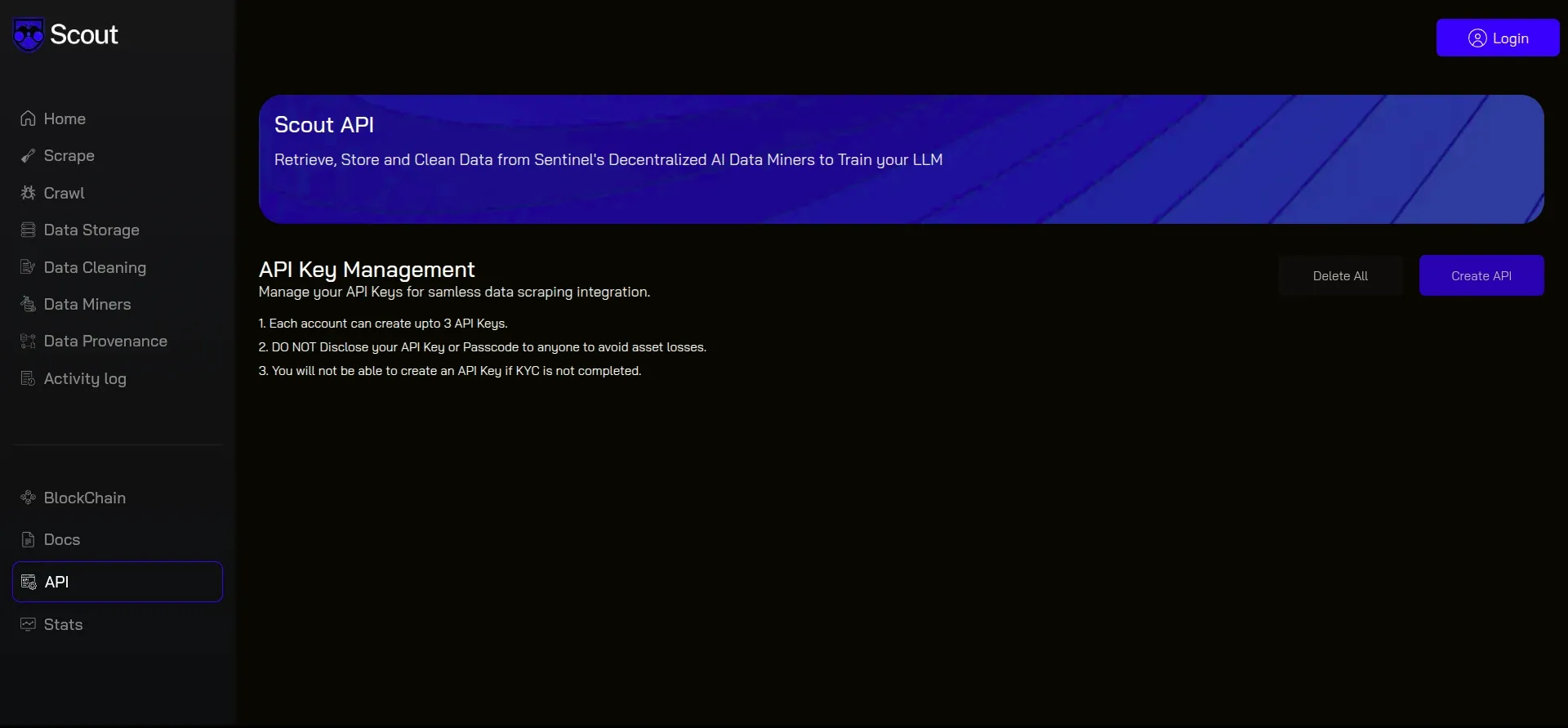
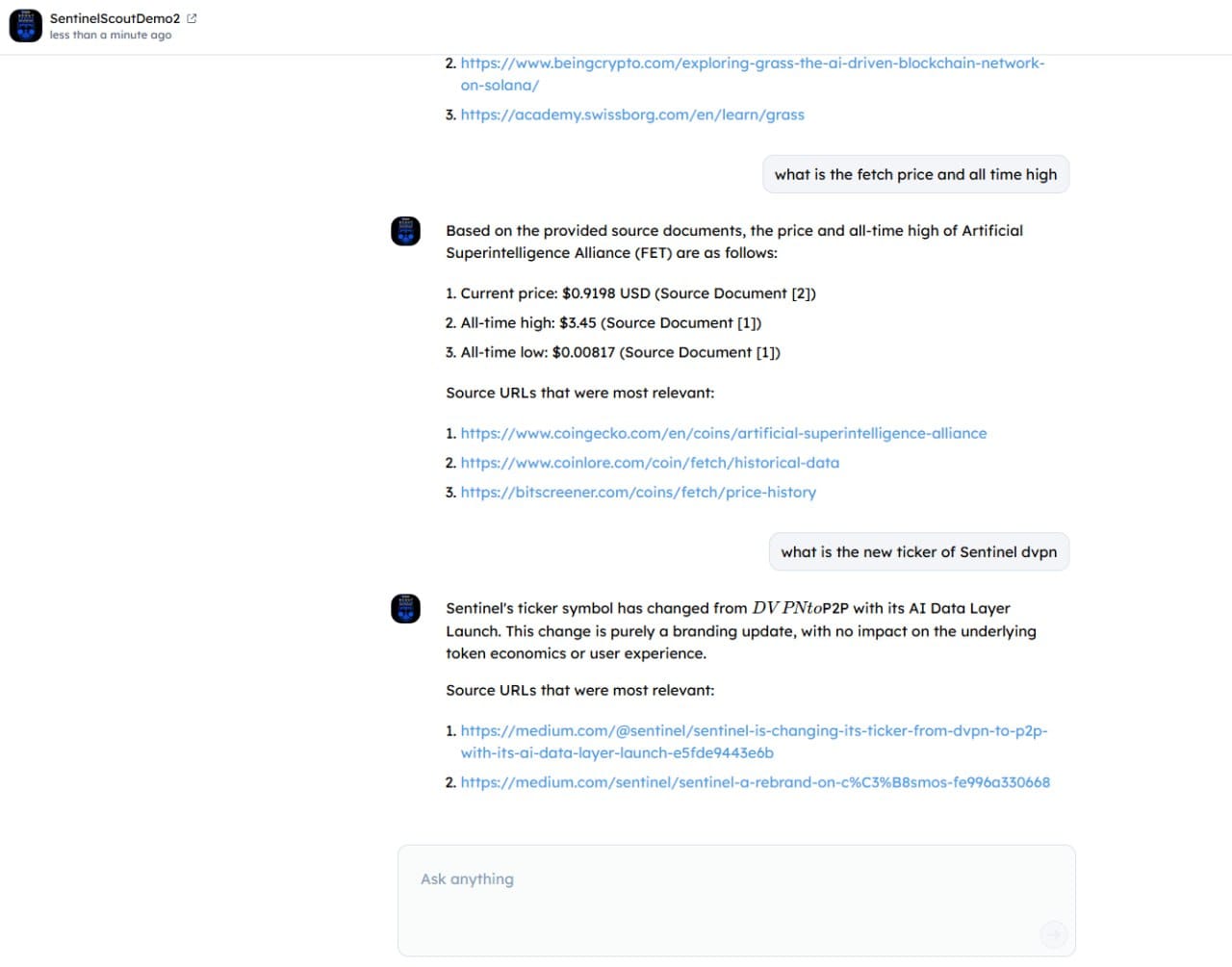
Left: API settings on the Scout dashboard. Right: A working early alpha AI agent powered by Scout. [Credit: Sentinel Foundation]
Sentinel CEO Aleksandr Litreev demonstrates what the Scout API can do for AI models. [Credit: Sentinel Foundation]
A few working prototype agents and LLMs have already been developed and showcased to the community and other interested parties, including a Telegram support bot for NORSE Labs and a few rudimentary agents (one of which is shown above).
These agents and LLMs were not trained or given any existing knowledge base to work from when they were originally deployed. All of the information which they use to respond to user prompts is acquired on the fly from Scout's decentralized open web data scraping network.
"The significance of this is tremendous," said ProjectAutonomy of the Sentinel Foundation as the results were shown to the community. "This is an AI agent with zero information in its database... searching for information online through Sentinel's mobile device network and then intelligently providing the answer to the user. This is a demo so it is work in progress... but this shows P2P's power. Every answer to a question comes from someone's phone."
After more than a year of hard work, Scout is in its final stretch of development and the full public launch is now looming on the horizon. The team is already in the final stages of hammering out terms for a major inaugural partnership. More details on that are available later in the article.
Community testing of both the Scout data miner node network and the protocol's AI training capabilities are critical at this juncture. If you have a spare Android device or are an AI developer of any experience level and would like to pitch in, open the article below to find out how to get involved.

New dVPN Features
The bulk of the exciting new features coming to the chain—such as automatic USD pricing for nodes, reintroduction of the OpenVPN protocol, and quicker in-app connection times—will be contained in the long-awaited chain upgrade later this year, but two crucial new tools for dVPN power users already went live during the past six months:
Split tunneling and a kill switch function are now available on all of the dVPN network's mobile applications, massively bolstering both the convenience and overall security of Sentinel's user experience.
If you're an American dVPN user on iOS, there's been some additional positive news. Due to a recent federal court ruling in the country, Apple has been forced to permit external (third-party) payment systems in apps and can no longer demand a 30% cut from in-app transactions. As a result, dVPN service on iOS in the U.S. is becoming substantially cheaper.
Website Preview
Though it has yet to go live, the team has shared a WIP preview of the front page of the new Sentinel website, which has been in development since last year and now appears to be in the home stretch.
Aside from giving Sentinel a more polished and professional frontend image, Some specific changes that the team has expressed interest in making include integration of Sentinel Scout and its requester dashboard into the main website flow; and consolidation of the website's various stats dashboards, maps, and other utilities into a unified interface.
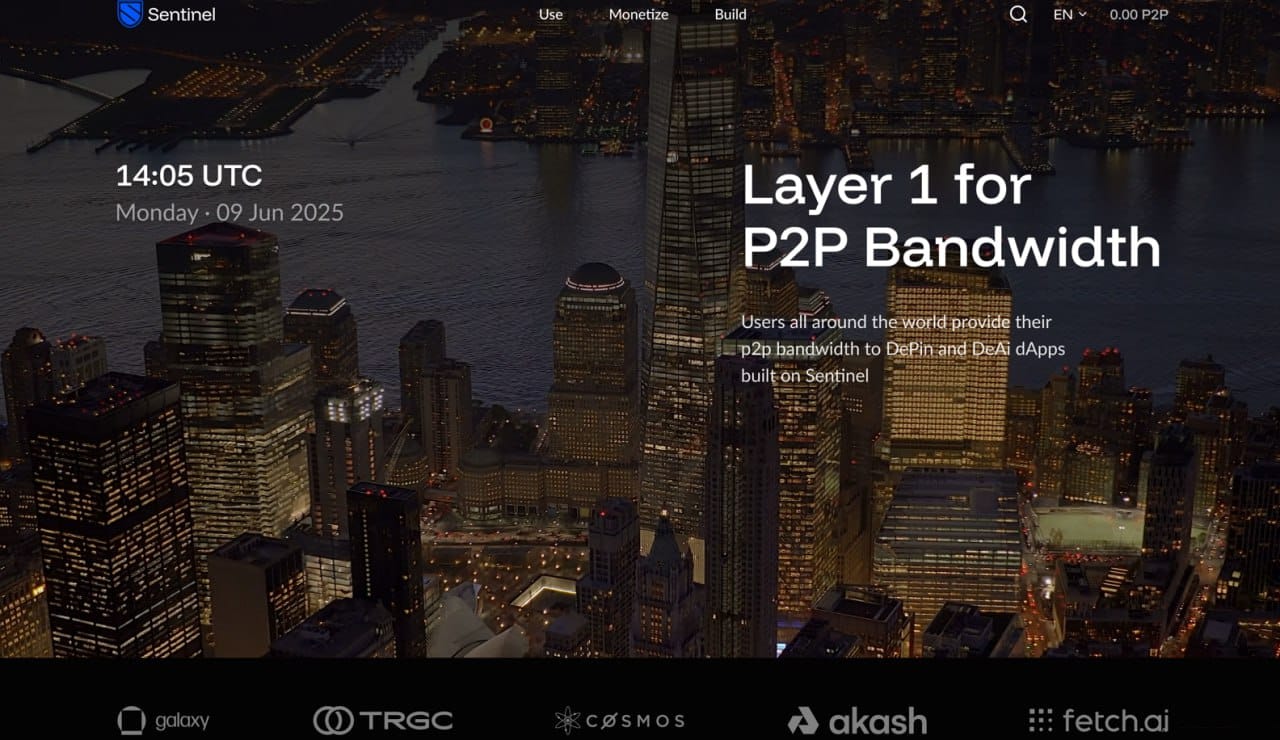

New Releases
The Sentinel Ecosystem's latest arrivals.
Cosmo dVPN
Sentinel's ATOM-powered dVPN client, Cosmo dVPN, went live on both major mobile platforms as well as Mac desktops in May, after over a year of development.
The application serves as both a gift to the ecosystem and a delivers a statement: Sentinel is ATOM-aligned and here to stay in the Cosmos Ecosystem. Cosmo dVPN promotes Cosmos and all of its constituent projects, provides the ecosystem's hub asset with new utility, and shines a spotlight on Sentinel's capabilities all in one go.
Subscription pricing has started at 0.5 ATOM per month (approximately $2.75 USD). Advanced in-app features which are already available include split tunneling, a kill switch, and RPC selection. New features such as residential node access (perfect for claiming airdrops) and Apple/Google Pay fiat gateways will be added in the coming months.
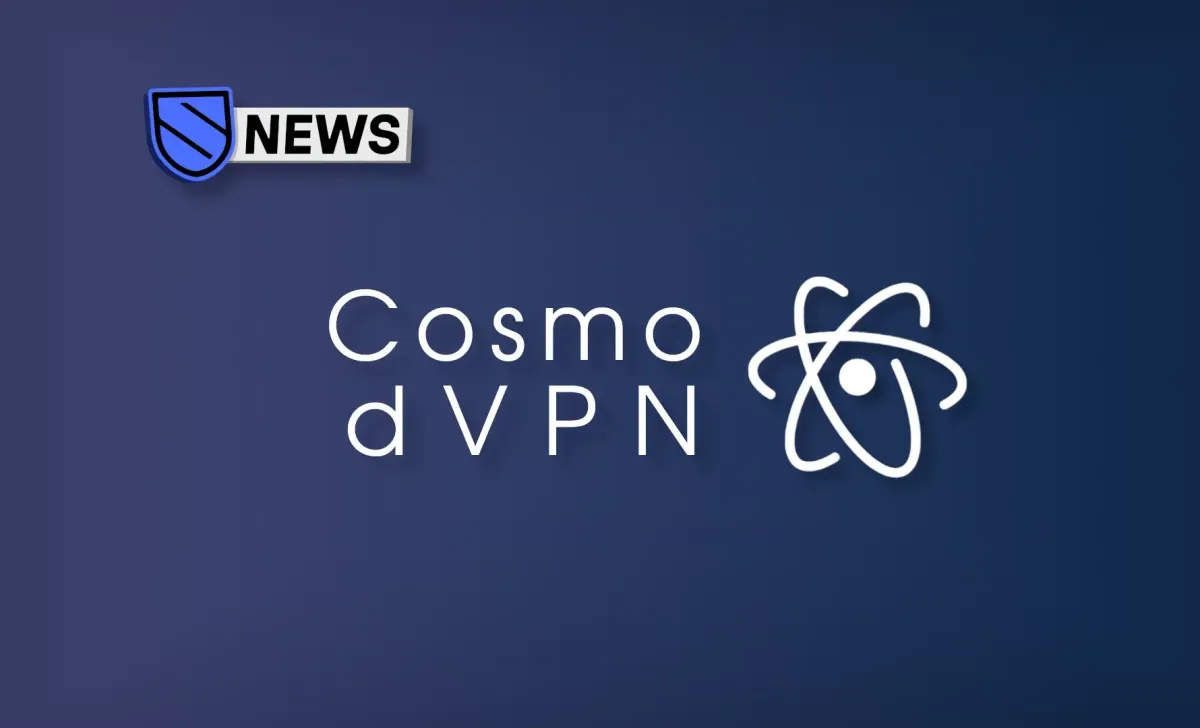
Our coverage of the Cosmo dVPN launch.
cVPN Onboarding
Scout isn't the only Sentinel protocol on the verge of a breakthrough: On the dVPN front, a paradigm-changing partnership has already been finalized, and onboarding is now underway.
An established traditional centralized VPN (cVPN) with over five million downloads on Google Play alone and over a hundred thousand active users per day is joining the Sentinel Ecosystem and becoming a dVPN.
Though an official announcement is still forthcoming, the impact of this cannot be understated: The presence of a well-established VPN on the network promises to substantially increase on-chain revenue. It will also potentially boost daily network usage (which is already very high for blockchain project) by somewhere in the range of 1000%.
In other words, this integration alone will catapult Sentinel into the top 1% of DePIN blockchains in both user metrics and overall revenue.
A helpful live directory of all active Sentinel dVPN applications (both first and third-party) is maintained on Sentinel Docs.

The Ecosystem
Updates on Sentinel's partners.
NORSE Labs
NORSE Labs has been busy furiously porting their standalone dVPN client (succinctly titled "DVPN") to new platforms. In the wake of Android and iOS releases last year, DVPN has also been released on Mac, Android TV, and Apple TV so far in 2025.
Both of the smart TV versions of DVPN have seen the most success, reaching the top five hundred free applications in multiple countries. The Apple TV edition even peaked at #2 in Russia before the Kremlin eventually took notice and blocked it.
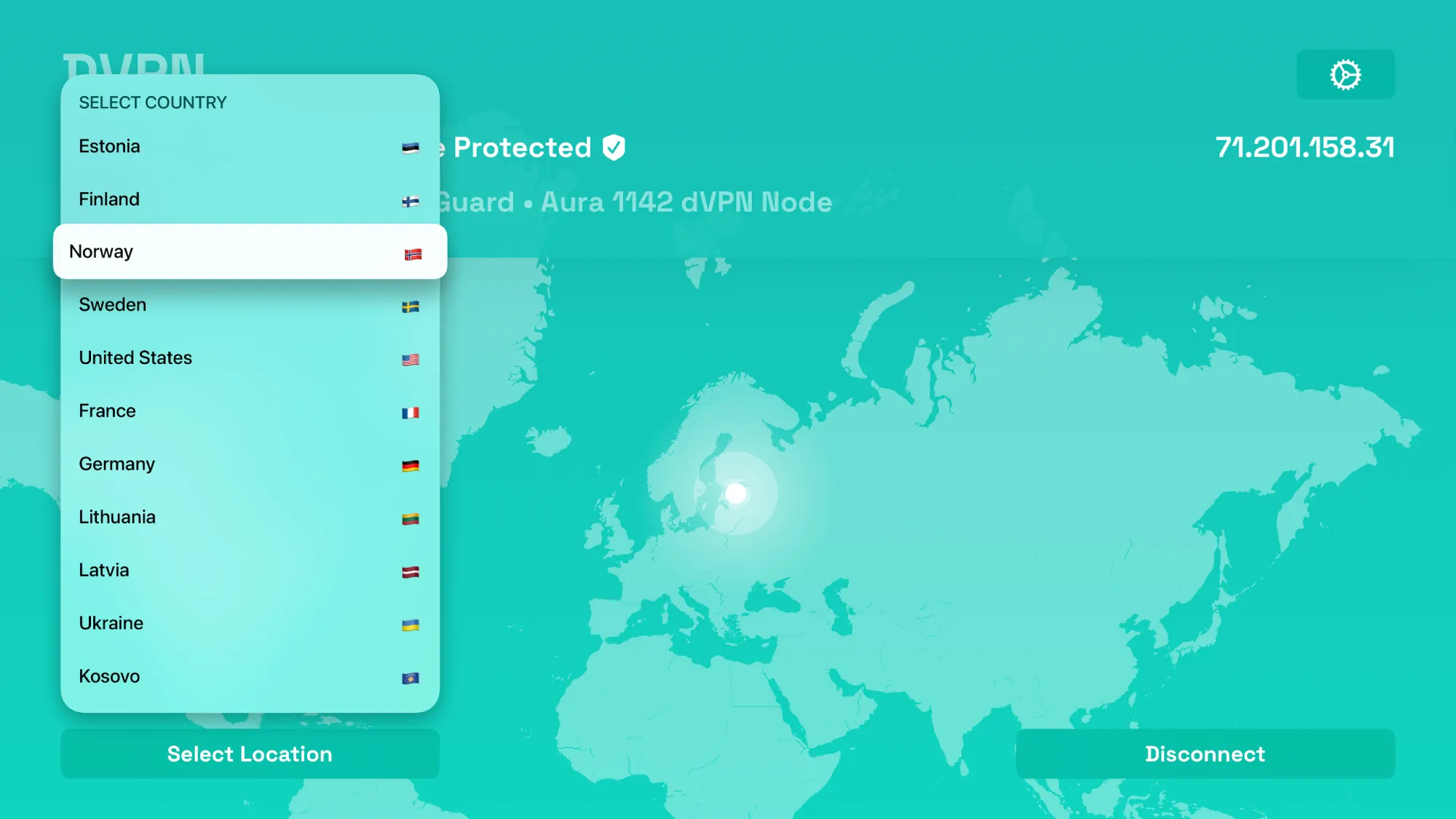
That takedown itself generated even more attention for NORSE and Sentinel, which culminated in a TechRadar article—the project's most prominent media coverage since a segment on BloombergTV in 2022.
NORSE also announced earlier this year that they've partnered with a telecom company with over 400,000 customers, for whom they'll be creating an entirely new bespoke dVPN application.

Our spotlight profile of NORSE Labs from March.
Meile dVPN
Since the start of the year, Meile dVPN has successfully capitalized on its broad support for desktop platforms and variety of subscription payment methods to expand its reach.
This has included accepting several new cryptocurrencies, ranging from blue chip alts like Solana and Litecoin to privacy coins like PIVX and PirateChain.
As part of their outreach strategy, MathNodes has worked to make themselves a visible part of those communities. That effort has paid dividends: Litecoin gave Meile a shout-out to their 1.2 Million X followers, PirateChain featured it on their June monthly update, and the software has been listed in several directories of crypto-friendly businesses, to name a few examples.
MathNodes has shipped two new major updates for Meile since the start of the year, which include the aforementioned new subscription payment methods, and many user experience enhancements and bugfixes.
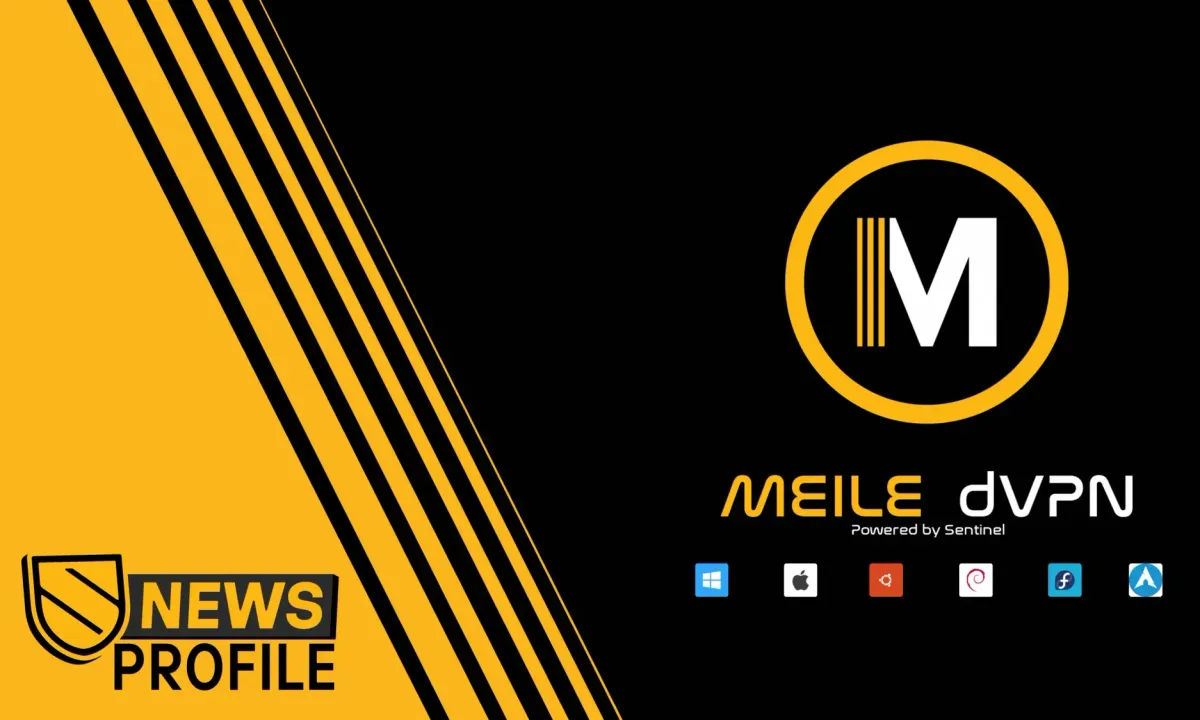
Our profile of Meile and MathNodes from February, including exclusive insight into their future plans.
Valt
Valt Data's freemium hybrid dVPN client/personal data manager has gone live on Windows and is available to download on their website. With that release, Valt became the second team to release a dedicated Sentinel dVPN client on the world's most popular OS, following Meile in early 2023.
In May, Valt and its CEO Zac Wickstrom won a pitch competition hosted by Gain Ventures (which is affiliated with Duke University) and Draper University at TOKEN2049's Dubai event.

The win placed the company on a fast track to the final round of the selection process for Draper University and Stellar's Web3 Founder Residency in Silicon Valley. Also included are a $20,000 USD grant, lodging and networking opportunities at Draper's campus in San Mateo, California; and a "demo day" with access to new investors and venture capital.

An in-depth profile of Valt that we published in March.
Casanode
A new alpha version of Casanode, a node manager suite being developed for the Sentinel Growth DAO by Foxinodes, was released this month.
Casanode offers a GUI operating system which can be installed on single-board/nanocomputers like Raspberry Pi devices to instantly turn them into residential dVPN Nodes. The suite also includes a mobile application (available for both Android and iOS) which allows remote control of the node once it's operational.
Testers are needed, so if you have compatible hardware to spare and would like to help out, reach out on Sentinel's Raspberry Pi Testing group on Telegram.

Our original article on Casanode, published last August.
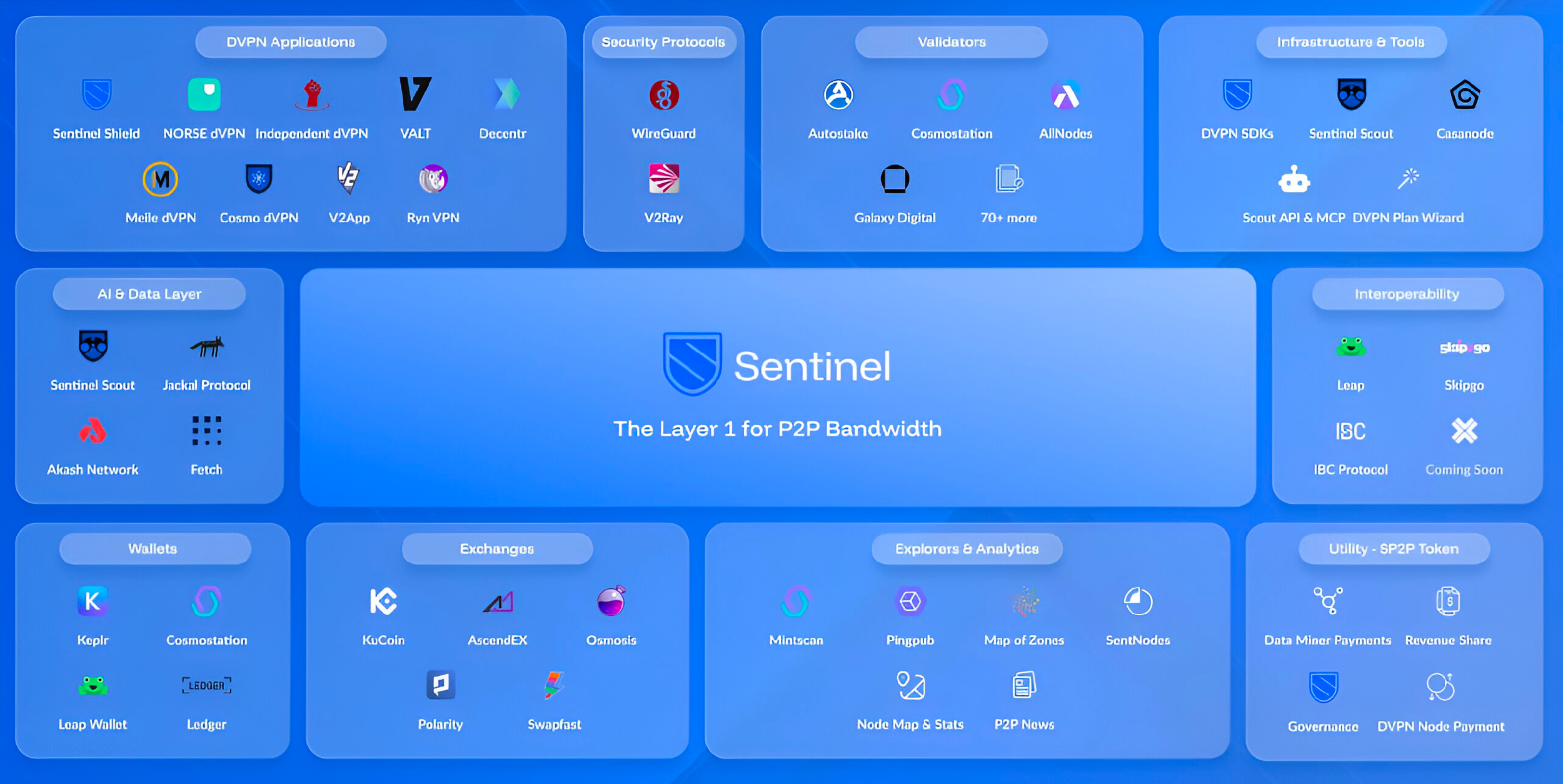
New Partnerships & Collaborations
encryptSIM
Vietnam-based encryptSIM are the world's first Web3 eSIM provider, and their official app (currently in open beta testing) features a Sentinel-powered dVPN.
In addition to being project's first telecom partner, the company is also the first direct Sentinel partner located in the East Asia region. Their cutting edge, privacy-friendly services are already available in more than 120 countries worldwide.
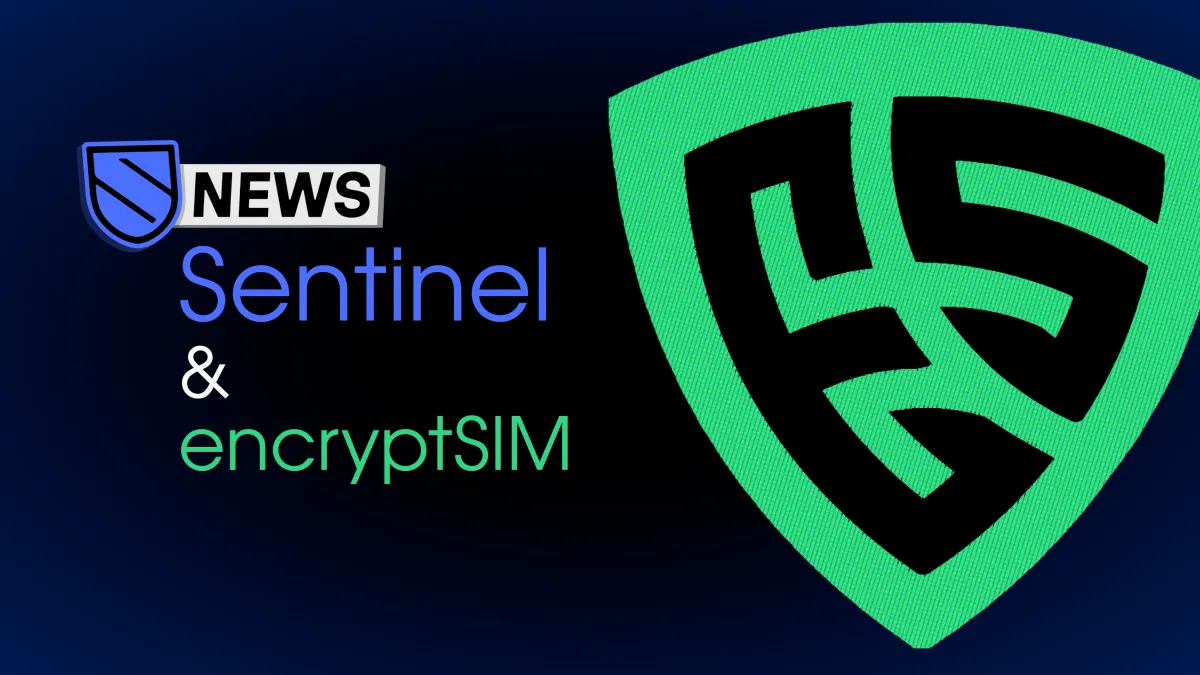
Our report on the new partnership from April.
AI Partnership
Sentinel is ironing out final terms for a groundbreaking partnership with a prominent blockchain AI project, who rank among the top one hundred crypto market caps and have shown profound interest in Scout's potential for enhancing AI agents.
Though the partnership itself is functionally a done deal, no official announcement has been made yet and thus we cannot explicitly report the partner's exact identity—however, that information is practically an open secret, and clues (to put it mildly) are included elsewhere in the article.
Bluefrens
Bitveil, who both validate the Sentinel blockchain and contribute to Meile dVPN, have been building Bluefrens, a fun-focused Sentinel side project which hosts community events like poker nights. Their upcoming NFT collection is a vast, detail-rich Sentinel celebration steeped in project lore.

The Bluefrens NFT collection, which will be minted on Stargaze in the very near future, showcases all things Sentinel, from core development to third-party teams and community platforms like P2P News.
"Each piece is crafted with care, drawing inspiration from [Sentinel] technology and culture... The collection includes 1410 NFTs, each uniquely generated from over 60 hand-drawn traits tied to Sentinel Ecosystem." said Bitveil team member Mullet of the collection.
SuchNode
Sentinel gained a second community-developed node explorer website when node network stalwart Teneke launched SuchNode.net in April.
The explorer features a live directory of every Sentinel dVPN Node, with configurable filters such as latest health check result, hosting method (data center vs. residential), and PlanWizard whitelisting status.
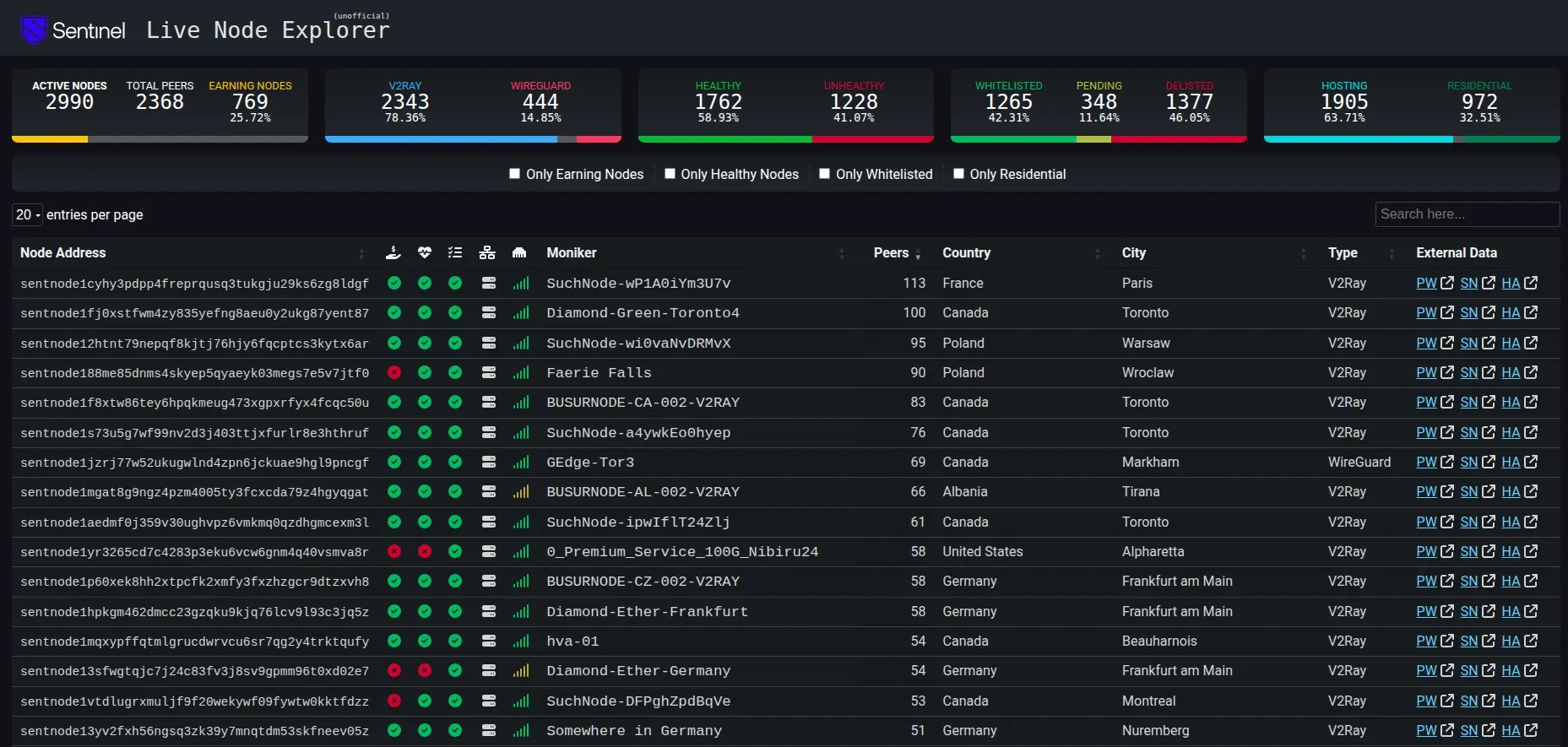

Community News
As mentioned earlier, Sentinel's ticker change has coincided with a face-lift of Sentinel's assorted community platforms. These have included name changes, new URLs, and updated branding aesthetics.
Though for the most part, Sentinel groups have been consolidated and therefore reduced in number, there was one notable exception: The project's presence on Reddit has now been split in two. r/SentinelP2P has become the new official subreddit for the Sentinel blockchain, but r/dVPN (est. 2020) will live on as a home for everyday app users.
P2P Governance
Six governance proposals have been submitted to coinholders for voting since the beginning of the year, all of which passed.
- Proposal 55: Reduced the P2P Coin's maximum inflation rate from 15% to 10%, and the minimum rate from 12% to 7%. Passed on 22 January.
- Proposal 56: An emergency proposal to repair the P2P-ATOM IBC channel. Passed on 23 January.
- Proposal 57: A routine funding request by the Sentinel Growth DAO. Passed on 27 January.
- Proposal 61: This proposal temporarily re-opened the IBC bridge from Sentinel to Sifchain, a defunct DEX, in order for community members to recover funds which were trapped there. Passed 1 February.
- Proposal 62: Introduced a de facto hardcap to Sentinel's total supply by necessitating an impossible 99% supermajority for any future changes to the parameter. Passed 14 February.
Note: Proposals 58–60 were either retracted by their submitter or did not progress past their deposit period.
Related Reading
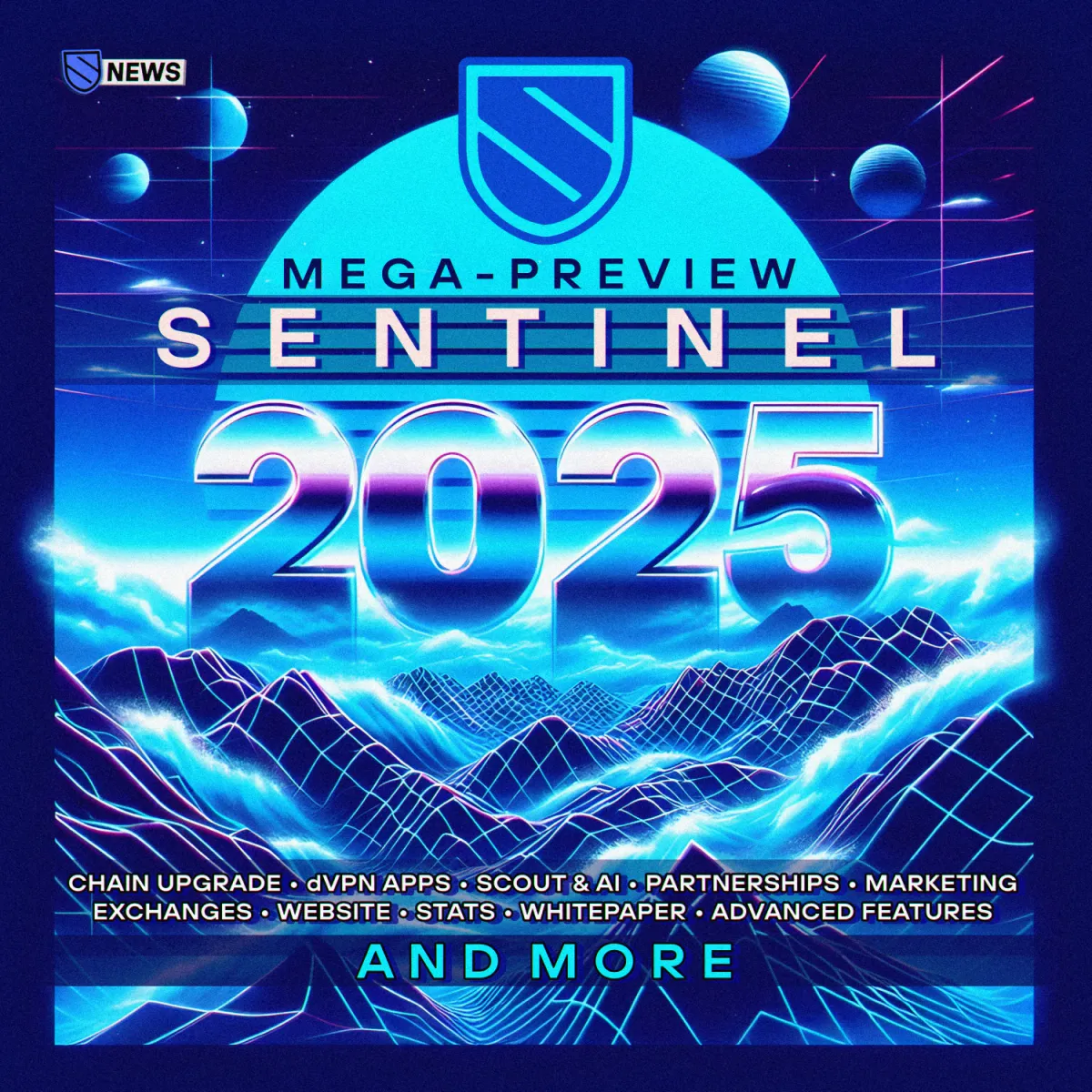
Our extensive preview of 2025 was published in January.

P2P NEWS
Powered by the Sentinel Growth DAO
The community's most-trusted nexus for news coverage of the Sentinel Ecosystem and its applications, distributed infrastructure, and third-party contributors across the globe.
SUBSCRIBE
Telegram • X • Newsletter
What is Sentinel?
Sentinel is a peer-to-peer global bandwidth marketplace which powers both privacy-focused consumer products and development utilities. The most prominent of these usecases at present are decentralised VPN (dVPN) applications and data acquisition for the training of AI models.
🎓 To learn more about Sentinel, check out more of our articles, visit the project's official website, or read the documentation.
















